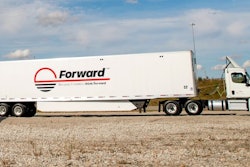As trade regulations shift, fleet managers are grappling with added complexity in an already constrained vehicle and upfit market.
The 50% tariff on imported steel and aluminum (excluding imports from the UK) affects the upfit sector, since these materials are essential in manufacturing truck bodies and other components.
The 25% tariff on imported automotive vehicles and specific parts like engines, transmissions, and electrical components, also has an influence on the sector. Exemptions for Mexico and Canada, U.S.-assembled parts, and imports that comply with the US-Mexico-Canada Agreement on trade (USMCA) are, however, in place.
The tariff on imported vehicles and automotive parts has added a layer of uncertainty to the vehicle acquisition and planning process, said Charles Mathew, assistant director of order and upfit at Merchants Fleet.
Fleet customers are putting orders on hold or canceling orders, wary of future cost spikes, Mathew said. Dealers, in turn, are responding quickly by stockpiling inventory to guard against anticipated supply charges, a move that in some cases has led to inflated vehicle pricing.
“This uncertainty, coupled with elevated interest rates, has made it challenging to forecast long-term pricing and plan strategic acquisitions with confidence,” Mathew said.
Ed Powell, director, consulting services at Holman, added that the tariffs have had the most direct and noticeable impact on the pricing of non-USMCA compliant imports. As a result, many fleet operators are rethinking their sourcing strategies and shifting focus toward USMCA-compliant models.
The upfit supply chain hasn’t seen major disruptions yet, Mathew and Powell said.
However, Mathew said certain elements should be under close watch. Components tied to global manufacturing, rare earth materials and raw materials (such as chips, metal-based parts, and complex electronics) are still vulnerable due to post-COVID impacts.
Mathew also pointed out that there’s growing concern around container availability and potential material shortages that could lead to bottlenecks.
Component availability has remained stable, Powell said, but select imported parts have seen notable price hikes and disruptions to availability.
“As tariffs continue to shift, OEMs, parts suppliers, and dealers continue to work quickly to adjust and, where necessary, revise their supply chains," Powell said. "Amidst these shifting conditions, there are likely to be further disruptions across the OEM and aftermarket parts categories.”
Financial concerns
Roughly 44% of OEM parts used in collision repair are sourced outside of the U.S., and a significant portion of those (not covered under USMCA) are now subject to tariffs, according to a report from PartsTrader. This shift has contributed to a 2.1% increase in OEM retail prices from Q1 to Q2 2025, more than doubling the 1% rise seen during the same period in 2024.
Two U.S.-based parts manufacturers that utilize imported components are already facing financial concerns. Auto parts supplier Marelli Holdings filed for bankruptcy protection to reduce its debt.
CEO David Slump noted in the company's court filing that “Marelli was severely affected by tariffs due to its import/export-focused business and the imposition of tariffs specifically against automotive manufacturers and suppliers.”
Aftermarket auto parts seller Detroit Axle filed suit against the Trump Administration in May after the end of the ‘de minimis’ tariff exemption. It brought the company a 72.5% tariff rate on imports, citing the burden as “financial ruin,” according to its lawsuit.
Tariff-related cost pressures, combined with increasing raw material expenses, are driving up the price of certain vehicle components and upfit parts, Mathew said.
“Quotes for service bodies and accessories like ladder racks are expiring more rapidly—sometimes in under 30 days—due to fluctuating raw material costs,” he said. “This pricing instability, even without widespread shortages, poses a challenge for planning and budgeting.”
This dynamic has required fleet operators to move quickly on pricing agreements, which Mathew said is recommended at Merchants Fleet to secure favorable pricing and lock in current rates, even if production schedules remain fluid.
Staying agile
Fleet operators are generally falling into two categories, Powell noted. Fleets that maintain disciplined vehicle replacement cycles and proactive maintenance schedules are better positioned to weather the impact. These fleets can opt to extend lifecycles if needed, using the extra time to evaluate new makes, models, and upfit solutions to minimize economic challenges.
On the other hand, Powell said fleets that are already struggling with an aging or poorly maintained fleet may find the challenges compounded by tariffs. For these operators, investing in new vehicles may be more economical than continuing to operate inefficient assets.
Leasing and other financing options can help absorb costs and preserve working capital, Powell added. Strategies such as equity refinancing and purchase/lease back solutions may help offset rising costs.
The most important step is to fully understand their supply chain exposures to tariff policies, Powell said. Open dialogue with suppliers is essential.
“Engage your suppliers to understand what they are doing to improve the cost structure within their existing supply chain and the steps they’re taking to mitigate the impact of tariffs for their customers,” he said.
He added that flexibility and adjusting practices as needed is also important such as approving the use of an alternative part or changing your preferred OEM or upfit partner.












